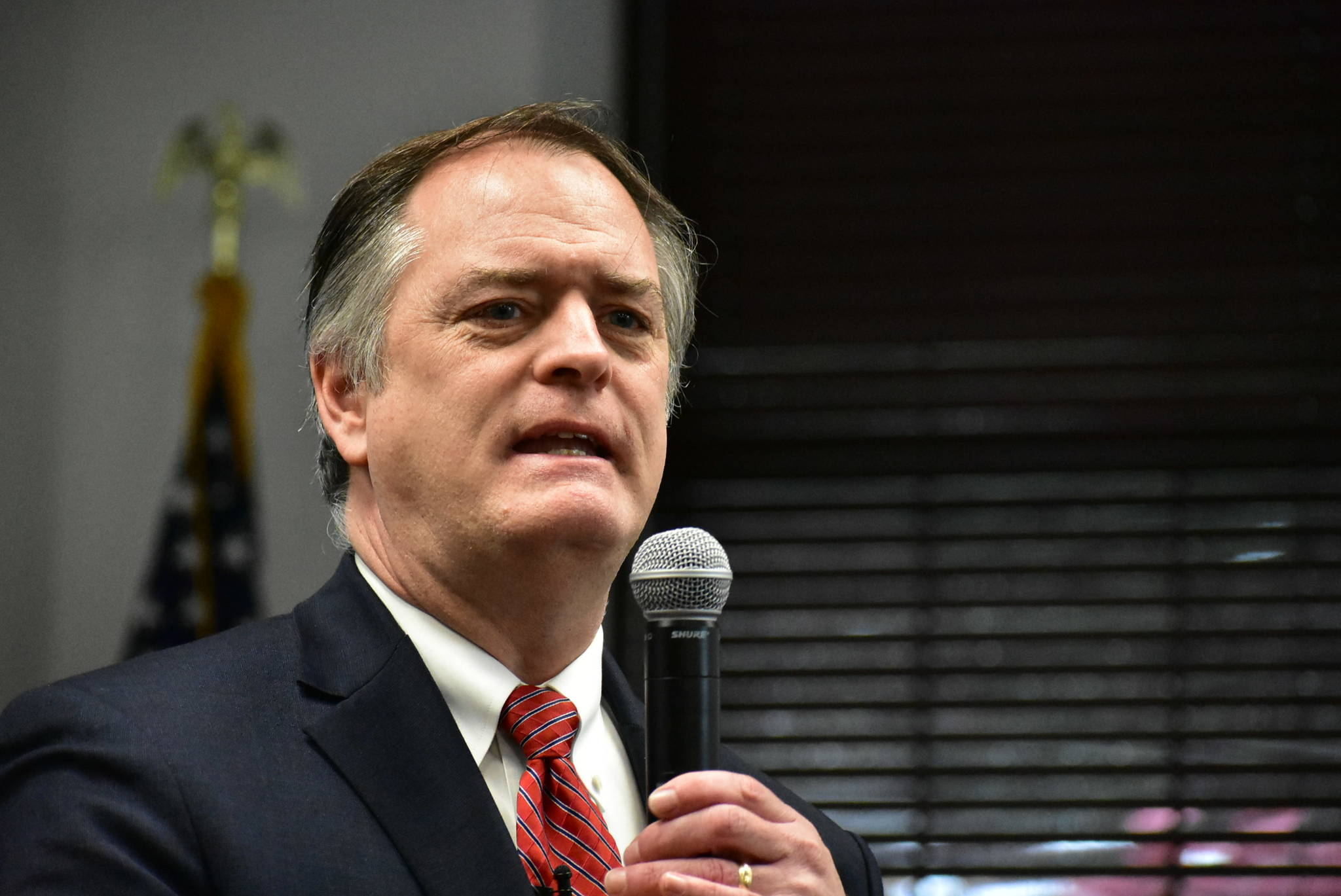Long before coronavirus became a household word, Gustavus resident Kelly McLaughlin was raising her children, growing a garden and keeping chickens. After water testing in her community revealed high levels of contamination, McLaughlin and others organized for solutions to the growing public health problem caused by manufactured chemicals called PFAS.
PFAS (per- and polyfluoroalkyl substances) are used in many household products such as Teflon and in industrial firefighting foams used at airports and military bases. PFAS have contaminated public drinking water supplies of millions of people around the world. They were first produced beginning in the 1940s by Dupont and 3M. PFAS are synthetic chemicals that don’t break down and therefore are known as “forever chemicals.” They are toxic at exceedingly low levels of exposure and are associated with adverse health effects including immune suppression, cancer and thyroid disruption.
On March 9, which now seems like a lifetime ago, McLaughlin and other members of the Gustavus PFAS Action Coalition and Alaska Community Action on Toxics traveled to Juneau. We hosted environmental attorney Robert Bilott to talk with legislators and participate in a public screening of the film “Dark Waters” starring actor Mark Ruffalo. The film tells the story of how PFAS chemicals came to be used in everyday household products and how Bilott fought for the rights of people whose drinking water was contaminated by Dupont.
Even on a snowy Southeast Alaska night, Juneauites filled one of the ballrooms in Centennial Hall for the movie screening and discussion afterward.
[House bill could lead to forever chemical regulations]
What is the Alaska connection? PFAS and similar chemicals have been used for decades in Alaska. The dispersive use of PFAS-based aqueous film forming foam used on military bases and airports has contaminated the drinking water of communities from the North Slope to Southeast Alaska. Bilott came to Alaska to help and his message was clear. PFAS are toxic, persistent, bioaccumulative and are a serious public health threat.
It was moving to see the turnout and support in Juneau at the movie and in the capitol. Reps. Sara Hannan, D-Juneau; and Geran Tarr, D-Anchorage; sponsored House Bill 240 to address the public health hazards posed by PFAS. On the Senate side, Sen. Jesse Kiehl, D-Juneau, is leading the way in sponsoring Senate Bill 176, a bill to address PFAS issues that now includes five co-sponsors. Rep. Tiffany Zulkosky held a hearing in Health and Human Services Committee and expressed deep concern for the public health implications of PFAS.
Even while the last few challenging weeks of pandemic living have gone by in a blur, our gratitude has only grown for the hard work of legislators and staff in their efforts to develop public policies to address the public health threats of PFAS and to prevent further harm.
On March 23, a bipartisan letter from members of the Alaska Legislature was sent to Governor Dunleavy urging the state to bring suit against manufacturers and distributors of the PFAS-containing firefighting foams that contaminate Alaska. The letter stated “we ask you to join the dozens of other state and local governments taking action to hold responsible the manufacturers who knowingly sold these products to Alaskans for their role in paying the tab.”
At the end of her testimony to the House Resources committee, McLaughlin held up a carton of chicken eggs from her home. She said: “They’re contaminated too. I’ve got 9 dozen …and I don’t know what to do with them because I can’t eat them. Test results came back – 13,000 to 25,000 parts per trillion… this bioaccumulates like crazy.” There are no enforceable drinking water or food safety standards either at the state or federal level. The latest peer-reviewed science indicates that drinking water standards should be 700 times lower than the guidance level of 70 ppt set by the Environmental Protection Agency.
McLaughlin’s testimony was a poignant demonstration of why we need the state to take action now to protect public health. PFAS are contaminating water, fish, wildlife and people in Alaska.
• Pamela Miller is senior scientist and executive director of Alaska Community Action on Toxics. Columns, My Turns and Letters to the Editor represent the view of the author, not the view of the Juneau Empire.

